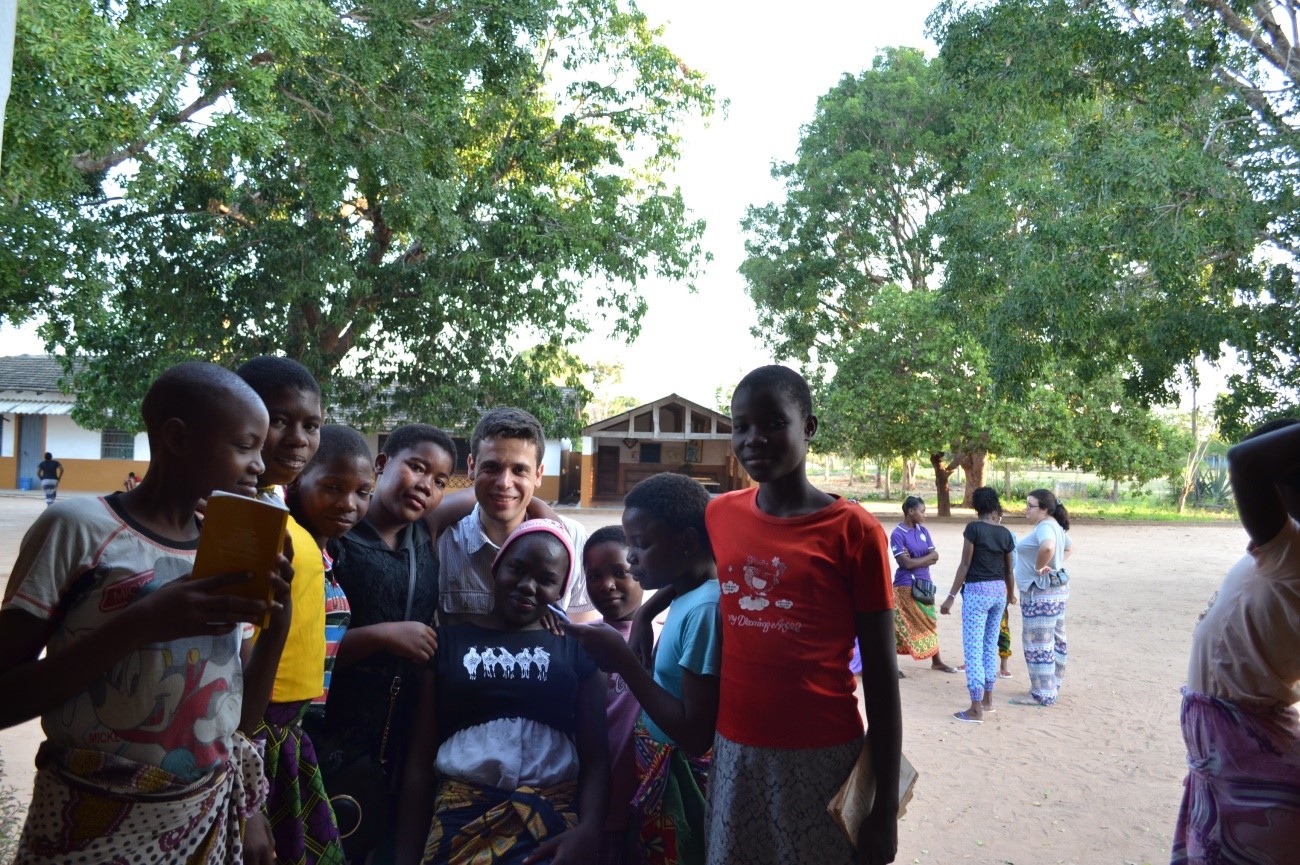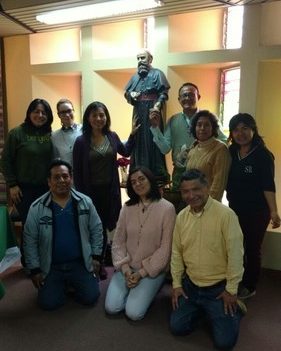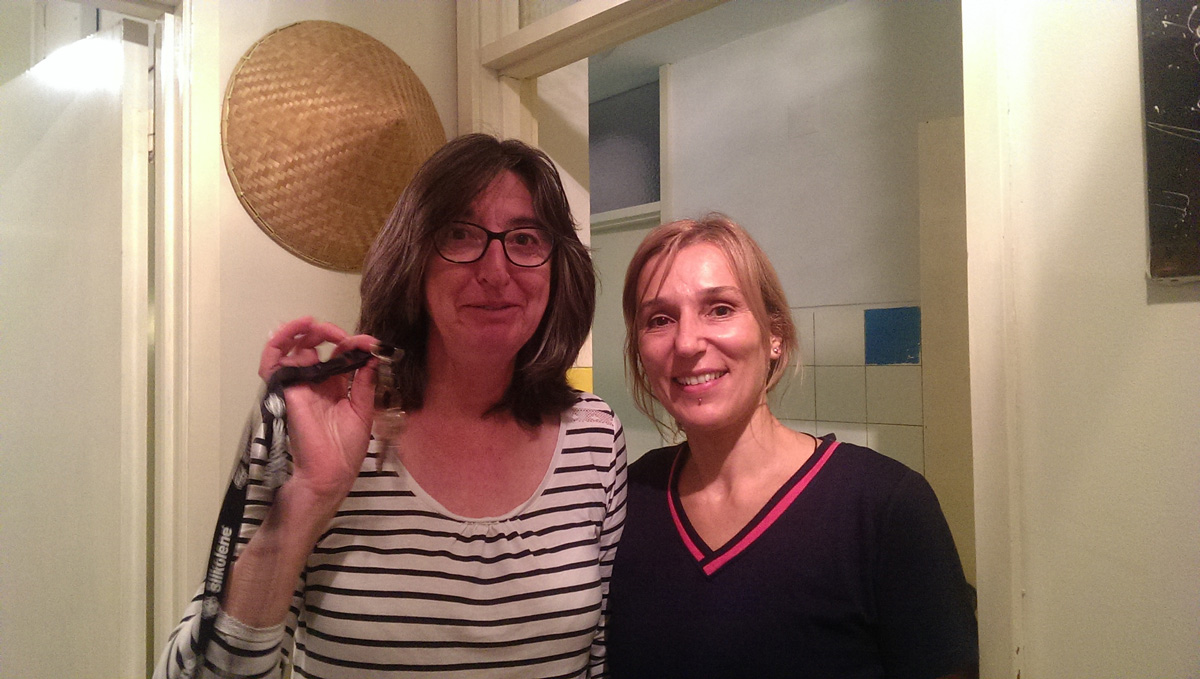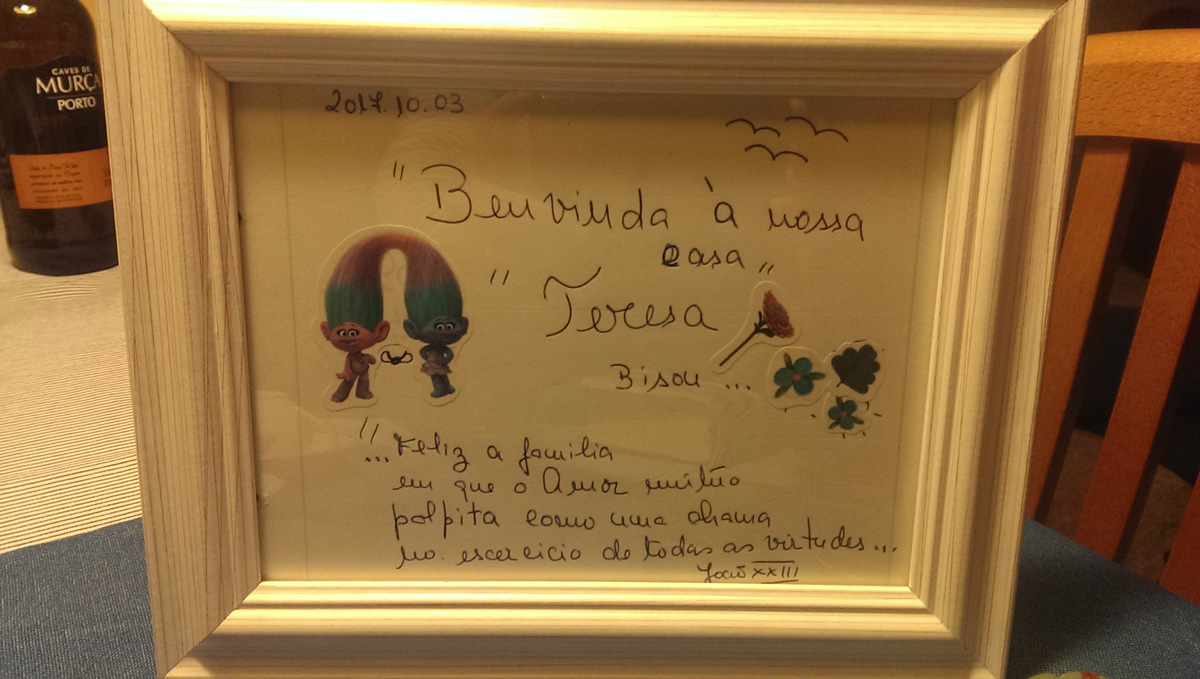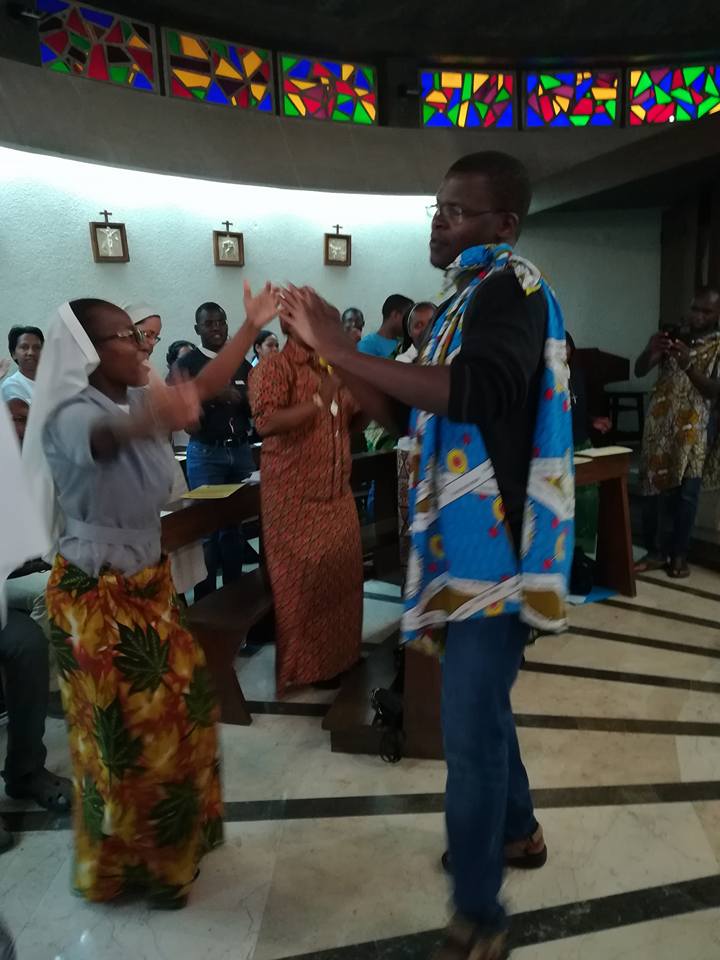 It was a gift from God that allowed us to expand and improve our view of the work of God from the point of you of grace! This missiology course which I was able to attend in Fatima on August 21-26 was a gift of God to me. It was an initiative of the people in charge of the Missionary Institutes ad Gentes (IMAG) with the support of the Pontifical Missionary Societies (PMS). During this time of formation I could see the oceans meat and unite in one single point: from the chair on which I was sitting I could enrich myself and deepen my love for this belonging to Christ. The participants numbered about 60, from four continents – Portugal, Italy, the Philippines, Colombia, Brazil, Guinea-Bissau, East Timor, Angola, Mozambique, and Congo, plus other countries. It was a week where color mixed and blended as we learned and shared this “Being Missionaries” today. Mario Breda, Ana Raposo, María José Martins and Luis made community with me. It was a rich experience of community as well as of sharing with the other participants.
It was a gift from God that allowed us to expand and improve our view of the work of God from the point of you of grace! This missiology course which I was able to attend in Fatima on August 21-26 was a gift of God to me. It was an initiative of the people in charge of the Missionary Institutes ad Gentes (IMAG) with the support of the Pontifical Missionary Societies (PMS). During this time of formation I could see the oceans meat and unite in one single point: from the chair on which I was sitting I could enrich myself and deepen my love for this belonging to Christ. The participants numbered about 60, from four continents – Portugal, Italy, the Philippines, Colombia, Brazil, Guinea-Bissau, East Timor, Angola, Mozambique, and Congo, plus other countries. It was a week where color mixed and blended as we learned and shared this “Being Missionaries” today. Mario Breda, Ana Raposo, María José Martins and Luis made community with me. It was a rich experience of community as well as of sharing with the other participants.
The course was rich in contents. We started on Monday, August 21, by tackling Mission in Matthew’s Gospel, with the help of Bishop Antonio Couto of Lamego. Bishop Couto presented the first book of the New Testament through and its connections to the Old Testament. It shows a Gospel of Forgiveness where Matthew, a tax collector, is converted to Christ thanks to the forgiveness he offers to all. Throughout the Gospel of Matthew, five discoursed stand out (an analogy with the Pentateuch of the OT): The Sermon on the Mount, the Mission, the Parables, the Church, and Eschatology.
I want to highlight the Missionary theme (Mt 10:6-10): “What you have freely received, give it freely” (Mt 10:8). It is grace – the biblical maternal example, the maternal gaze we can share with one another. Bishop Antonio stressed that, as missionaries, we must keep this “pause and wellbeing in the music of our life in order to let the Holy Spirit speak.” He underlined the importance of being missionaries who “are always open to be surprised and sensitive.”
Christians have a vital mission. Yes, we are called to serve today’s humankind trusting fully in Jesus and allowing ourselves to be enlightened by his word: “You did not choose me, but I chose you to go and bear fruit and that your fruit will remain.” How much time have we wasted! How much useless work have we done because we did not understand this point! Everything is defined as based on Christ, as it concerns the origin and usefulness of mission: we always receive our mission from Christ (…) (from a homily by Benedict XVI, Oporto, May 14, 2010)
On the 22 we cruised through the History of Christianity across the centuries with Dr. José Eduardo Franco as our guide – Christianity and Globalization: the State, the Church and Mission in the modern age and today. We came to understand that history is not in the past, but in the present. It creates the present. And in this journey we understood the role of the Portuguese through their discoveries across seas never crossed before for the Mission and the Evangelization of the Christian Church. And even more, how this mission was, in the course of time, the basis of the globalization which is now reaching its peak. In the course of this journey we looked at the images of God and of the Church starting from the 1st century – the territorial God of Isaac and Jacob, where the person acts individually through God’s will – following through the spreading of Christianity by its disciples and by the missionaries who went along on the journeys of discovery and reaching, finally, the reality of today. We actually came to understand that the Gospel requires a mission which is inculturated: becoming Greek with the Greeks, Roman with the Romans (St. Paul), enriching Christianity with the best each culture has to offer. The Gospel must lead to humanization and, in this way, the missionary is the builder of a new humanity that reaches all not by imposition, but by its credibility.
On the 23rd we continued with the theme of Missionary Spirituality with the help of Dr. Teresas Messias. But what is this Spirituality? It not limited to Christian living, but it is a dynamic of the entire being. We all have it inasmuch as we all are moved by a desire to be auto-transcendent, to be fulfilled, to be happy. We spoke of this Christian Spirituality as having to be always missionary. It is a spirituality that sets me free and has an eschatological dimension, namely, that never ends. We came to see the Trinity as the source of mission, in the relation of Myself-Christ-Others.
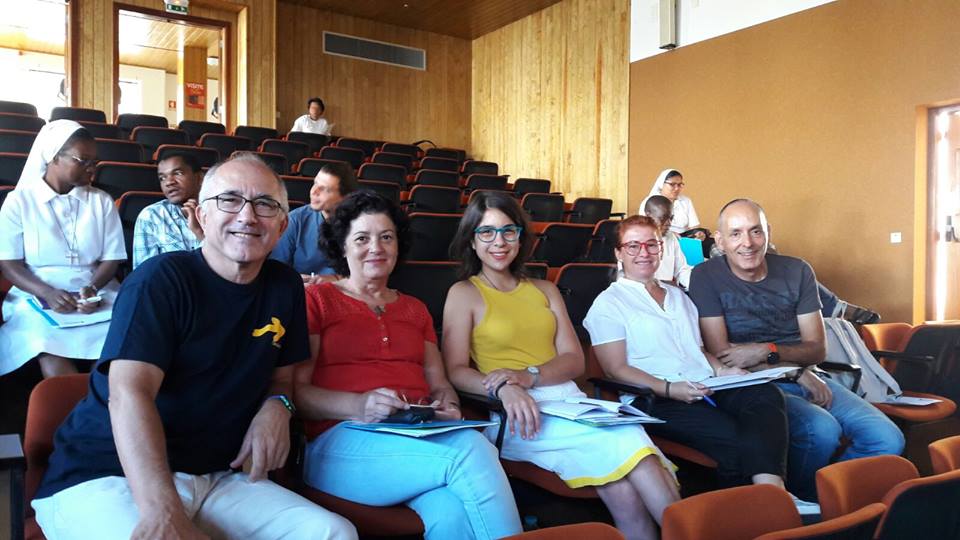
Mission does not consist only in doing things, but in being a person, in the possibility of being life and of giving life to others cross humankind. It means to empty oneself, the kenosis mentioned by St. Paul. (Dr. Teresa Messias)
We saw this Missionary God, who also empties himself when he gives us the Son, a Parental God, who is not only Father, but also Mother, and only thus becomes fruitful. A God who not only gives, but also accepts the Son, and receives. This is translated in my being a missionary: those who only know how to give, do not know how to love. The ability to receive is necessary.
Thus, Missionary Spirituality requires stepping down, emptying oneself, “being rich he became poor for you, that you may be enriched by his poverty” (2Cor8:9). It is trust in divine providence that can only be obtained through prayer, listening, and reading of the signs of God, “aspiring to things from on high and the rest will be given to you besides.” (Col 3:1-4). It is Inculturation, namely, to immerse ourselves in each culture in order to meet the novelty of Christ.
We reflected on the Christian Mission, its potentials and difficulties. We discovered the need for a constant exodus, a decentralization of the Church from itself – the Church does not preach itself, does not serve itself, is not fixated on itself, but is oriented on Christ. Mission is not an end in itself, and a Church which is self-absorbed is not the Church of Christ. We ended the day reflecting over our own mission, in its personal, unique, charismatic dimension of the following of Jesus. The answer is a progressive journey requiring prayer and a listening attitude as the only way to find out what God wants of me each day.
On the 24th we received the gift of the wisdom and serenity of Fr. Adelino Ascenso with an artistic focus on literature and theology: the writings of Shūsaku Endó. I could listen to this for days – wise words, the result of an unimaginable experience in Japan, of the contact with the people and the deep silence of Tibet, where the only sound was the chattering of his own teeth, such was the cold he experienced. He started by introducing Japanese literature and traditions, a culture of hiding places, of silence and harmony, of the triple insensitivity towards death, for example. We moved through an historical perspective of the arrival of Christianity in Japan. This is where Shūsaku Endó entered the picture with his novels, “Silence” among them. Endó struggled through his entire life over questions related to his faith, especially on being both Japanese and Christian. This struggle is very evident in his works with themes that could contribute to elaborate a new image of Christ and of Christianity in Japan. In this fashion, in the course of the day, Fr. Adelino established a bridge between the state of Christianity in Japan and the novel “Silence” (a film we saw at the end of the day), speaking of apostasy, of the silence of God in various life situations, and of the salvation of the fallen (and of all human beings, independently of what they believe). Being gifted with a very artistic knack for expressing himself, Fr. Adelino concluded with some words that ended up in my diary:
“The Church does not possess Christ. His presence is not limited to the Church, even though it is in it that we learn of his presence outside of it.”
“We can only know God through his wounds” (a quote from the works of Thomas Halik, My God is a Wounded God)
“Silence is not the absence of words, but rather a murmur of God well beyond silence.”
Almost at the end of the course, on the 26th, we had with us Friar José Nunes who introduced us to Interreligious Dialogue. We studied the evolution of communications between religions over time. We saw how, today, the Church proposes a fruitful dialogue with other religions, based on appreciation and respect. We saw also how religions are “ways of salvation,” not because of their creed, but because they give each human being a meaning for life. Religions have a lot in common.
“[The religious traditions of humankind] deserve the attention and respect of all Christians, and their spiritual patrimony is an effective invitation to dialogue, not only on what we agree upon, but especially on where we differ.” (Cocument on Dialogue and Mission)
Together with these times of reflection, the historical vision of Christianity, the revision of on being Christian Missionaries, we also had time for group sharing on the various themes. They were enriching times of sharing each culture, of personal growth and Christian togetherness.
It was also a week sprinkled with the beauty of multicultural celebrations of the Eucharist, where the skin tones mixed to paint the picture of the Feast of the Lord, with music in various languages and dances crowded the altar.
These various days of inspiration, of great attachment to the missionary vocation, touched me and filled my heart seeing the journey that humankind has traveled as a pilgrim in this divine Work, the World, the Universe. Proudly missionary with all the participants, I felt sent with this flame that only God can kindle. God sends us. Quoting Fr. Adelino Ascenso in his final address: More than “go and teach,” God tells this missionary Church, “Go and listen!”
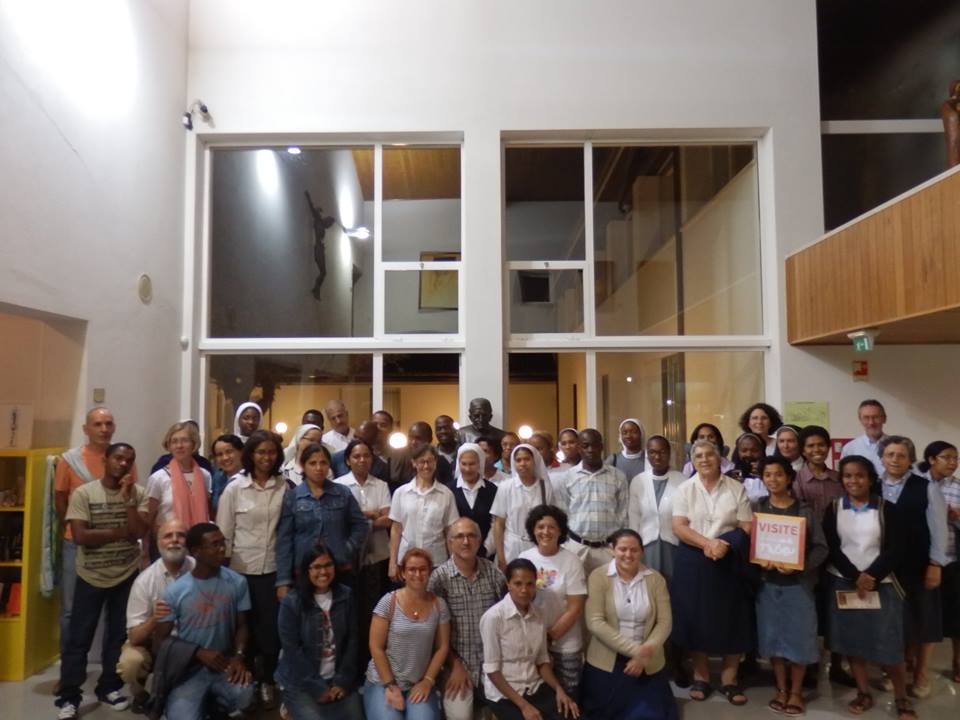
CLM Carolina Fiúza
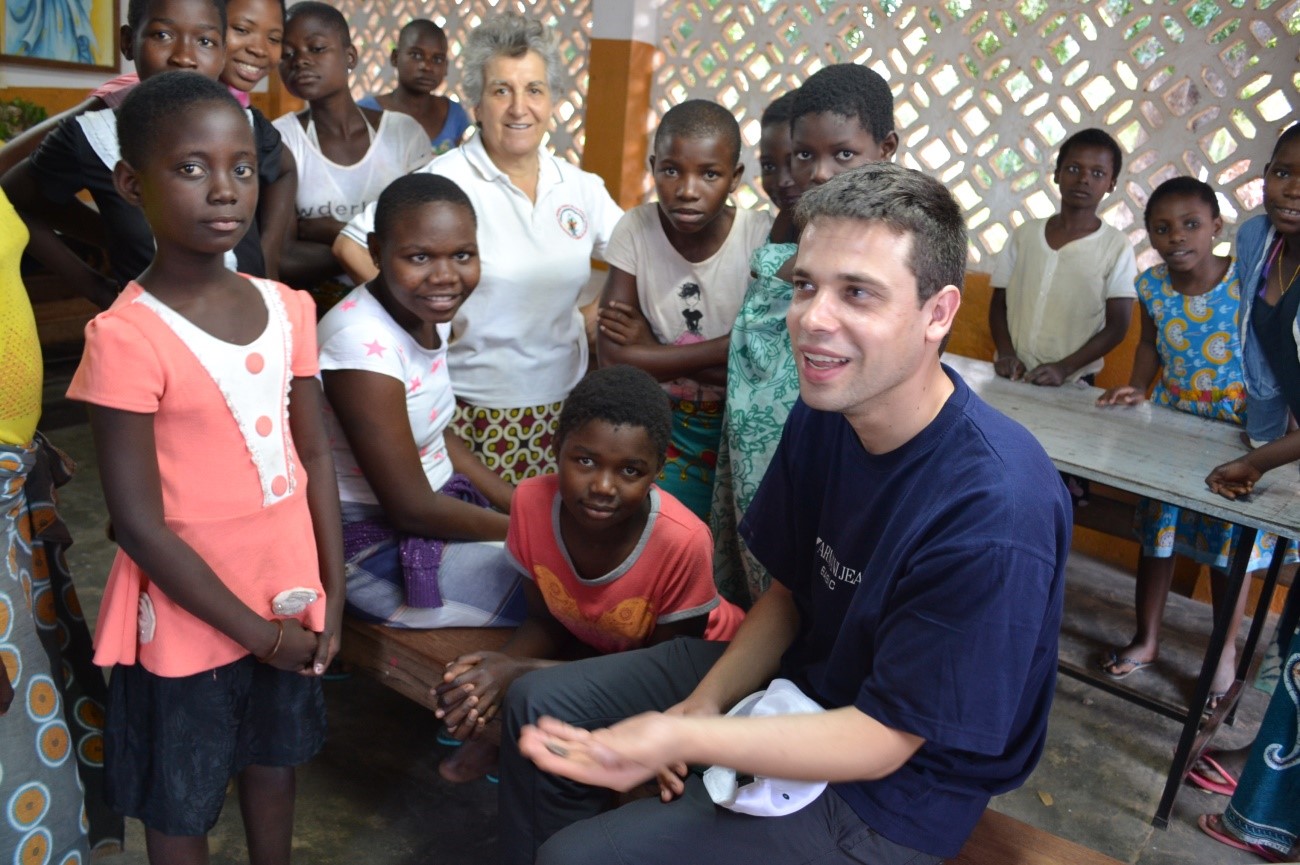 “We are moved by a dream,” wrote Sebastián da Gama. Many times, a dream rules the soul of a person. It can take us to places we deeply desire, but we not always manage to reach in reality. Since 2015, Carapira had been a dream to me. To return to a place where I had been so happy, to see once more well-known faces, people who had touched me deeply, was something I did not think that could happen again.
“We are moved by a dream,” wrote Sebastián da Gama. Many times, a dream rules the soul of a person. It can take us to places we deeply desire, but we not always manage to reach in reality. Since 2015, Carapira had been a dream to me. To return to a place where I had been so happy, to see once more well-known faces, people who had touched me deeply, was something I did not think that could happen again.




